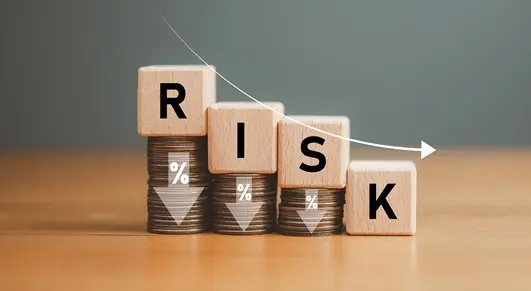Self-Directed IRAs Offer Freedom—But Also Risk
Self-directed IRAs (SDIRAs) are growing in popularity for investors who want to take control of their retirement by investing in real estate, private equity, notes, and more. But with this flexibility comes responsibility—and a new set of risks that traditional IRA holders rarely face.
Right now, the top concerns buzzing in the SDIRA space are the risks of fraud and prohibited transactions. If you’re investing or considering it, understanding these risks is critical to protecting your retirement savings.
Why Self-Directed IRAs Are Targets for Fraud
Unlike typical IRAs, self-directed IRAs allow you to invest in non-traditional assets. But most SDIRA custodians don’t vet the investments or the people offering them—they simply administer the account.
This hands-off approach creates a major opportunity for fraud. Promoters may offer fake real estate deals, Ponzi schemes, or high-yield investments in unregulated assets. The custodian’s role isn’t to protect you from bad investments, which means it’s up to you to do your homework.
If you fail to perform due diligence—or trust the wrong person—you could lose your entire retirement investment.
What Is a Prohibited Transaction?
A prohibited transaction happens when your IRA deals with a disqualified person (such as you, your spouse, your children, or your parents) in a way that violates IRS rules. These rules are in place to keep your retirement funds separate from your personal finances.
Common prohibited transactions include:
- Borrowing money from your IRA
- Selling property you own to your IRA
- Using IRA-owned assets for personal benefit
- Paying yourself or a family member to manage an IRA investment
If the IRS determines you’ve committed a prohibited transaction, your entire IRA could be disqualified—leading to taxes, penalties, and even early withdrawal fees.
How to Protect Your SDIRA From These Risks
Fortunately, you can avoid most SDIRA pitfalls with the right education and preparation. Here’s how:
- Do Your Due Diligence
Always research the investment, the promoter, and the business involved. Look for independent reviews, third-party verifications, and clear documentation.
- Learn the IRS Rules
Understand who is a “disqualified person” and what activities are off-limits. A little education goes a long way toward keeping your IRA compliant.
- Work With Experts
Consult a CPA or attorney who specializes in self-directed IRAs. Their guidance can help you structure deals correctly and avoid red flags.
- Choose a Trusted SDIRA Provider
Not all SDIRA companies are created equal. Look for one with strong industry experience, transparency, and a track record of compliance support like uDirect IRA Services, LLC.
Final Thoughts
A self-directed IRA can be one of the most powerful tools in your wealth-building arsenal—but only if you know how to use it wisely. Stay alert to fraud, avoid prohibited transactions, and surround yourself with a knowledgeable team. With the right approach, your SDIRA can help you build lasting, tax-advantaged wealth.
uDirect IRA Services, LLC is here to help you build your retirement savings. We are not a fiduciary and we do not offer tax or legal advice. We do not recommend specific investments, rather we guide you through the process to self-direct your retirement savings into assets you choose. To get started, we offer a free consultation. Schedule yours HERE – To open an account, click HERE.

